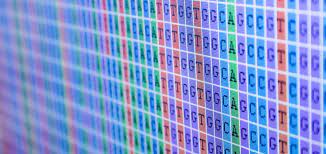Con el actual poder de computo y la marcada tendencia a disminuir el costo (y tiempo) del secuenciamiento es interesante indagar en los aspectos éticos de la genomica. Estos aspectos tienen que ver con el almacenamiento de la data, la transferencia, propiedad, descubrimientos y consentimiento (entre varios más). Los siguientes son una serie de publicaciones que nos permiten, desde la perspectiva técnica y del procesamiento de los datos, tener una visión mas o menos clara de cuales son las barreras, buenas practicas y puntos en los que debemos poner atención.
1.- Ethics and Big Data in health
[...]Considering the fact that health data (and especially genetic data) are considered “sensitive”[...] [...]"Ethics is about goods that we have reason - and sometimes even an obligation - to pursue, such as the good of knowledge that can be used to bring about significant improvements in health”[...] [...]Perhaps it is time to move to a new paradigm where we catalyze and activate the right of all citizens to benefit from advances in science via data sharing, its benefits, and its applications as probabilistic at-risk health information becomes the “treatment” (ii). [...] [...]Canada has in 2017 adopted legislation prohibiting the use of genetic data by life insurers, following the lead of European countries [8].[...] [...]Moreover,whole genome sequencing and Big Data are likely to reveal unanticipated information as interpretation improves, and in turn unanticipated third party misuses [12].[...] [...]In the context of data intensive health research, it can also build on the jurisprudence of other human rights such as those to health, to procedural fairness, anti-discrimination, equitable access, and privacy[...] [...]Codes, whether developed by industry, professional bodies or regulators, hold great promise to be flexible instruments for the further international framing of responsible data sharing.[...]
2.-Framework for responsible sharing of genomic and health-related data
[...]This Framework is developed under the auspices of the Global Alliance for Genomics and Health. Its mission is to accelerate progress in human health by helping to establish a common Framework of harmonized approaches to enable effective and responsible sharing of genomic and clinical data and to catalyze data sharing projects that drive and demonstrate the value of data sharing. This Framework provides guidance for the responsible[...] [...]Article 27 of the 1948 Universal Declaration of Human Rights. Article 27 guarantees the rights of every individual in the world “to share in scientific advancement and its benefits” (including to freely engage in responsible scientific inquiry), and at the same time “to the protection of the moral and material interests resulting from any scientific…production of which [a person] is the author”. [...] [...]The value of this Framework is that it: offers political and legal dimensions that reach beyond the moral appeals of bioethics and provides a more robust governance framework for genomic and health-related data sharing;[...] [...]Foundational principles for responsible sharing of genomic and health-related data Respect Individuals, Families and Communities, Advance Research and Scientific Knowledge, Promote Health, Wellbeing and the Fair Distribution of Benefits, Foster Trust, Integrity and Reciprocity[...] [...]This Framework applies to use of data that have been consented to by donors (or their legal representatives) and/or approved for use by competent bodies or institutions in compliance with national and international laws, general ethical principles, and best practice standards that respect restrictions on downstream uses. [...] Approaches: Transparency, Accountability, Engagement, Data quality and security, Privacy, data protection and confidentiality, Risk-benefit analysis, Recongnition and attribution, Sustainability, Education and training, Accessibility and dissemination
3.- International Ethical Guidelines for Health-related Research Involving Humans
[...]When data are stored, institutions must have a governance system to obtain authorization for future use of these data in research. Researchers must not adversely affect the rights and welfare of individuals from whom the data were collected.[...] [...]specific informed consent for a particular use or broad informed consent for unspecified future use must be obtained from the person from whom the data were originally obtained.[...] [...]When data are used that were collected in the context of routine clinical care, an informed opt-out procedure must be used. This means that the data may be stored and used for research unless a person explicitly objects. However, a person’s objection is not applicable when it is mandatory to include data in population-based registries[...] [...]When researchers seek to use stored data collected for past research, clinical or other purposes without having obtained informed consent for their future use for research, the research ethics committee may consider to waive the requirement of individual informed consent if: 1) the research would not be feasible or practicable to carry out without the waiver; and 2) the research has important social value; and 3) the research poses no more than minimal risks to participants or to the group to which the participant belongs.[...]
4.-Research ethics and the challenge of whole-genome sequencing
Post en actualización constante.
